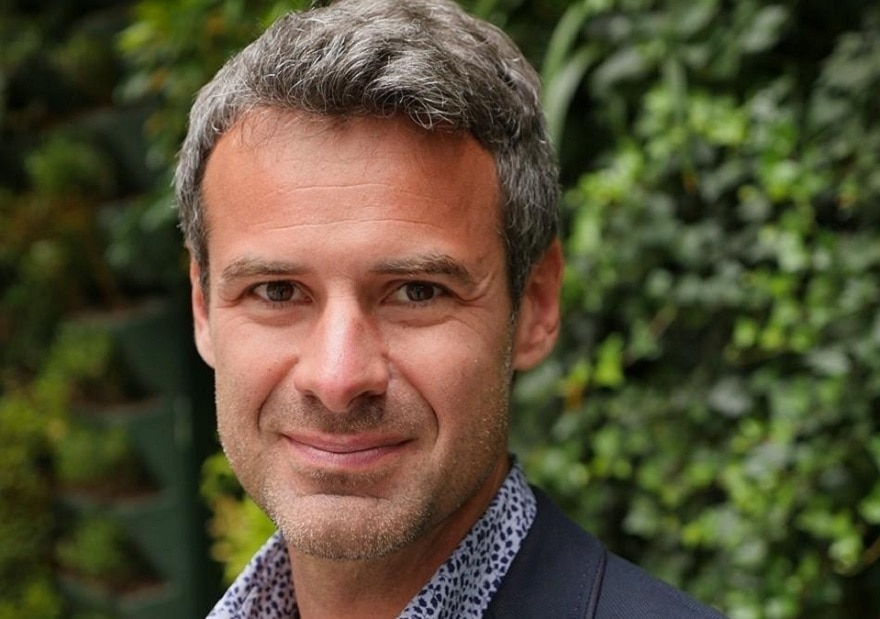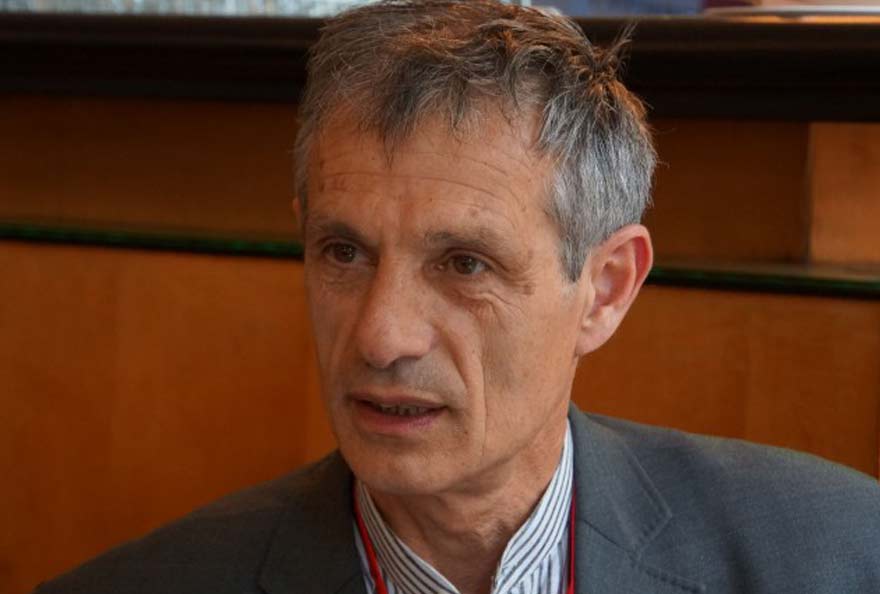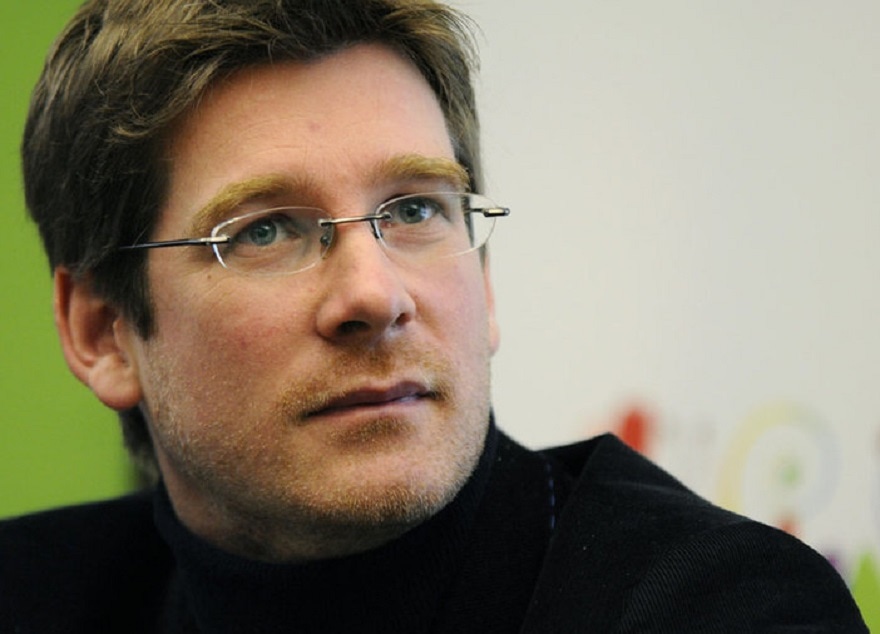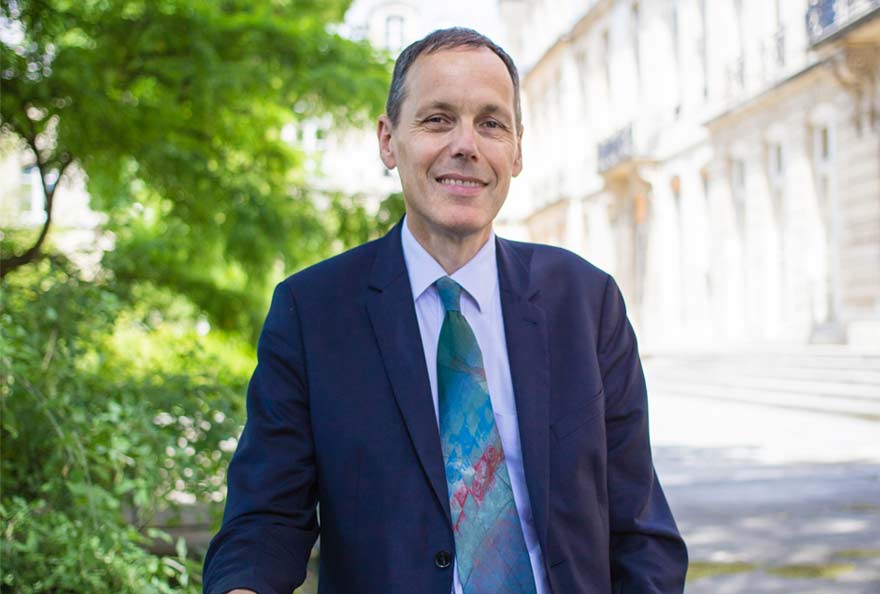After buying our organic take-away, Arnaud Devigne takes me to 29 rue Berri, the headquarters of INDEED France, where he has been the Managing Director for about a year. INDEED is the first job search engine founded in 2004 and already has more than 4000 employees worldwide. As part of my quest to determine whether Emmanuel Macron is disruptive, I wanted to have this interview with Arnaud because I know he is a disruptive person. On the march and that he's been immersed in digital for 20 years. After three minutes of discussion, Arnaud explains that he has been interested in Virtual Enterprises and new organizational forms since the 1990s - one of his heroes is his strategy professor at the University of Ottawa at the time, Christian Navarre. After three minutes and 36 seconds, he tells me that Emmanuel Macron is a transformational talent. Wow! The interview, which will last almost two hours, promises to be very rich. And I'm going to take advantage of it to push Arnaud to the limit to imagine what the future of the State could be like.
Arnaud has been interested in politics ever since he was a child, yet even when he was at Sciences Po, he had never been involved. He had never really found himself in any party, all of them carrying dogmas that deprived him of his liberties. He became interested in Emmanuel Macron when he joined the government. He found him full of common sense, without being populist.
Beyond common sense, Arnaud explains to me that Emmanuel Macron is a transformational talent. Since the end of the 90s, the business world, in France and internationally, has changed a lot. Digital has had a lot to do with it because it has completely reopened the field of possibilities. At the same time, a new generation of talent has begun to emerge, challenging existing managers. These transformational talents are characterized by a search for meaning, a challenge of the status quo and the proposal of alternative solutions. And so, of course, one understands what makes Emmanuel Macron a transformational talent.
First of all, it carries a vision full of meaning and values. As I wrote in another article, one of its strengths is to bring together through a Simon Senek approach: the Why or the Massive Transformative Purpose. Based on vision and values, the program is almost secondary. It is a consequence. Then it challenges the status quo especially by refusing the left-right cleavage. Finally, it proposes new solutions by freeing itself from dogmas, for example by proposing the right to unemployment insurance for all types of workers, whatever their status.
The future of organisations - including the notion of open organisation - being one of my current research topics, I drink whey while listening to Arnaud because then he explains to me how companies in the new world are organised. Three characteristics of these new companies are vision, data analytics and rapid experimentation. We have already talked about vision above. As far as data analytics is concerned, this too is a real paradigm shift: we no longer do market research. Instead, huge volumes of data are collected and decisions are made by analyzing them. Big data has replaced the old job of marketing director. In terms of rapid experimentation, or what marketers call A/B testing, you test a product or service on a small scale.
Wouldn't this new way of doing business also be the future of the state? A state whose leader would be the guarantor of a set of values and a vision? A government that, instead of conducting major annual studies, would report and analyze information in real time to make decisions? A State that would implement some form of A/B testing, or local experimentation? Basically, why do all major reforms fail? They fail because citizens can no longer stand the fact that so-called knowledgeable people are making decisions. Would this not be the effective way to sell reforms to citizens? The role of the state would not be to ask the people what they want through elections or referendums, but to take the pulse through data and conduct local and rapid experiments.
Then I ask Arnaud to explain to me why he thinks Emmanuel Macron is disruptive. We will look more at the form - the way of doing things - than the substance - the proposals.
For Arnaud, Emmanuel Macron uses the three principles mentioned above to manage his movement: vision, data analytics and rapid experimentation. The point of view on data analytics is in line with what Arthur Muller explained to us. Thanks to data, On the march is doing political geo-marketing. As an anecdote, Arnaud tells me that it was through a very fine monitoring of the web and social networks that Macron made its coming-out in reverse at Bobino. All this suggests that it could lead, if necessary, to the renewal of the state. It would thus move from the state as regulator and controller to the state as facilitator, catalyst and animator.
Open organizations have a set of characteristics. One of these traits is the systematic use of platform strategies, including platform infrastructure (as I call them). The idea is that an organization cannot offer solutions for every niche and every need. On the other hand, an organization can set up an infrastructure, an environment, a toolbox that allows third parties to develop a multitude of applications, solutions. In this respect, Arnaud thinks that the State could set up platforms. For example, an education platform, which would then allow private or public organizations to build their own approach to education in order to respond as finely as possible to local specificities or those specific to certain citizens.
I must admit that I find a vision of the state as an open organization implementing a platform strategy quite attractive. Is the analogy with the transformations that the business world is undergoing purely conceptual, or is it the future of the state? Is Emmanuel Macron also a platform builder? Answer in the next issue...
This article is based on an interview with Arnaud Devigne on March 24, 2017 by Albert Meige, Presans.com
About Arnaud Devigne
Arnaud Devigne holds a Master's degree in Marketing from Sciences Po, a Master's degree in Internet and Telecommunications Management from the University of Paris Dauphine and an MBA from the University of Ottawa. Arnaud Devigne has more than 20 years of experience in the world of Tech and the Web. He began his career as a strategy and marketing consultant for major accounts. After working for more than 10 years for companies such as Accenture and Capgemini Consulting Telecom & Media, he joined Google France in 2009 as Head of Business Marketing. He was also Marketing Director at Viadeo and PagesJaunes. In April 2016, he will join Indeed France as Chief Executive Officer and will be responsible for building the brand, strengthening collaboration with French companies and institutions and developing awareness programs for the general public and employers.
Login
0 Comments
Inline Feedbacks
View all comments












